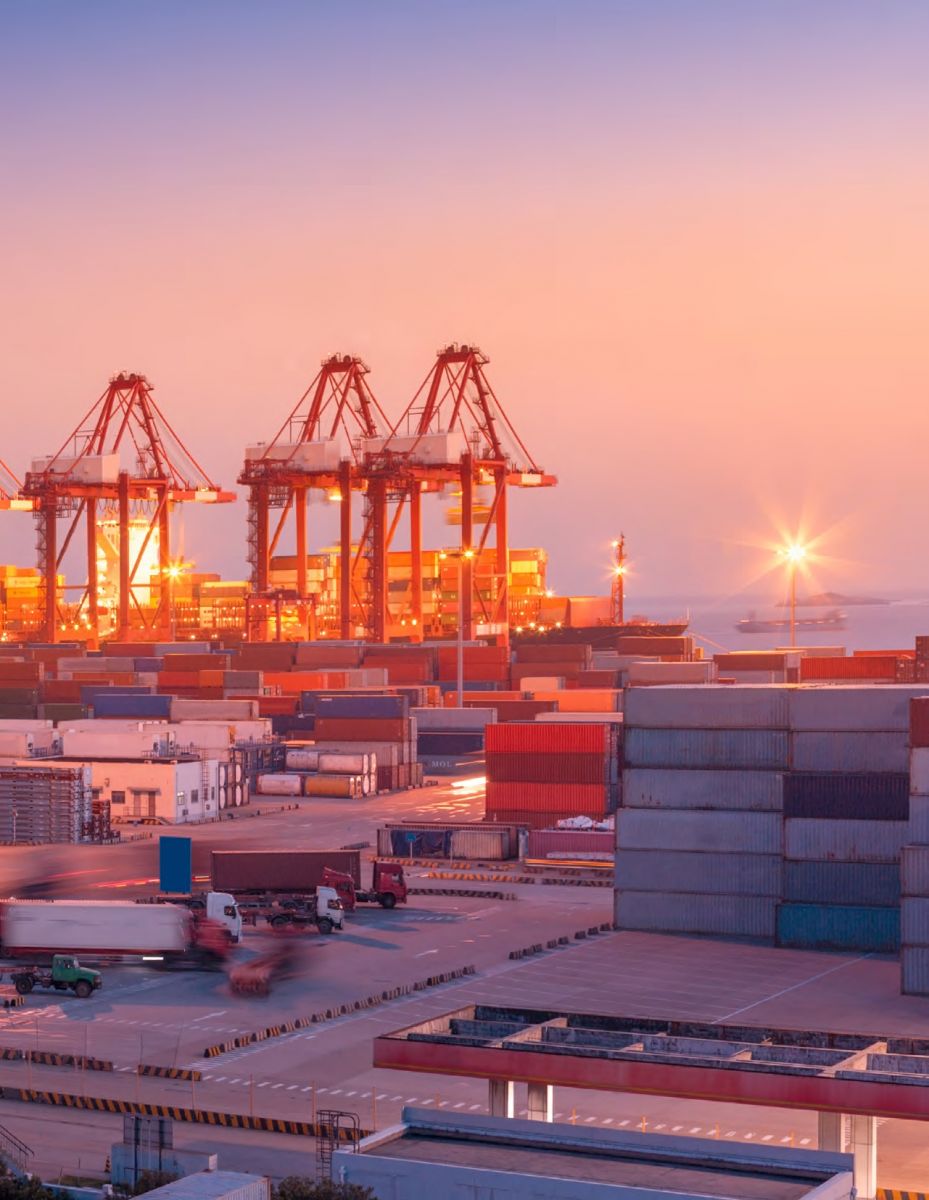Building Resilient International Supply Chains - What clean energy companies need to know
By 2030, the United Nations predicts that the worldwide population will reach 8.6 billion-one billion more people than today. This growth is anticipated to continue into 2100.
 Sustaining a growing global population requires access to healthy food, clean air, fresh water, and other natural resources. To meet this need, clean energy companies are investing heavily in new research and development initiatives to power our future. To achieve this, companies must start sourcing parts and components from a wider network of suppliers-ultimately expanding their supply chains to include international markets. In fact, a recent survey of global clean tech executives found that global expansion, and management or growth of supply chains, rank among their top five priorities over the long term.
Sustaining a growing global population requires access to healthy food, clean air, fresh water, and other natural resources. To meet this need, clean energy companies are investing heavily in new research and development initiatives to power our future. To achieve this, companies must start sourcing parts and components from a wider network of suppliers-ultimately expanding their supply chains to include international markets. In fact, a recent survey of global clean tech executives found that global expansion, and management or growth of supply chains, rank among their top five priorities over the long term.
As supply chains become more interconnected, however, companies are exposed to new risks. While relatively predictable, they can lead to business disruption, and even failure to meet global needs.
For clean energy companies looking to grow their supply chains abroad, either for the first time or to expand into new countries, here are a few things to keep in mind.
Where in the world are supply chains going?
Clean energy companies primarily source supplies from the U.S. and Europe. Yet, despite these two regions providing economic stability and comparatively simple business processes, they will decline in dominance.
Southeast Asia is one area of the world that is emerging as an attractive option; the percentage of companies set to source in the region will more than double over the next three years, to 33 percent. China is also a top destination, ranking as the third most preferred market for sourcing - today and in the future. This shift will add new supply chain complexity, and new risks to be managed.
Risks around the world
Supply chains are critical to a company's success, and are inherently sophisticated no matter where they are located.
As more supply chains expand internationally, businesses and suppliers become more independent, which makes any single disruption potentially significant. For example, within a supply chain network, each supplier has its own suppliers-and those suppliers likely source from other companies. Should any one supplier within this chain suffer a production delay or quality issue, it can have a cascading effect, ultimately affecting the end company's reputation and revenue.
These threats don't just exist in the abstract. At least half of the clean tech executives surveyed suffered a supply chain disruption in the past three years. Among the greatest challenges are quality assurance and production problems, ranked first on the list by clean energy executives. Production problems also posed a serious risk (they came in second).
The reason clean tech executives are so concerned is that, when they depend on someone else to manufacture a component (or several components) for their product, they yield a certain amount of control and oversight. Additionally, emerging markets may have different cultural standards when it comes to quality, which potentially puts a product at risk if this difference is not proactively discussed.
Another significant global supply chain concern is intellectual property (IP) protection - ranked by clean tech executives as the third overall risk to their supply chains. As supply chains become more globalized, it's vital to understand the different laws each country has regarding IP protection and enforcement; these laws are typically less stringent than U.S. laws.
.jpg) Finally, stability of the legal and political environment in the countries where international suppliers are located is a top concern for clean energy companies. Deciding which supplier to work with can depend on a number of variables: Are they located in a place where there is a stable political situation on-the-ground? Is there a sound infrastructure in place to physically move supplies? How easily can component parts be exported? Even minor changes in a country's legal or political environment can have an outsized impact on a supplier's ability to operate.
Finally, stability of the legal and political environment in the countries where international suppliers are located is a top concern for clean energy companies. Deciding which supplier to work with can depend on a number of variables: Are they located in a place where there is a stable political situation on-the-ground? Is there a sound infrastructure in place to physically move supplies? How easily can component parts be exported? Even minor changes in a country's legal or political environment can have an outsized impact on a supplier's ability to operate.
Safeguarding international supply chains
Supply chain disruption can have serious implications. Of the companies that suffered a supply chain disruption in the past three years, 80 percent reported that it resulted in a severe business impact, including delayed deliveries, decreased revenue, impacted profit margins, and reputational damage.
By understanding international supply chain risks, clean energy executives can implement the necessary risk mitigation best practices to curb their exposures. When launching or expanding their international supply chains, they should keep the following in mind:
- Never rely on a sole supplier. Companies should have multiple sources for critical supply components.
- Engage proper vetting practices when building their network. Beyond looking at physical characteristics like storage facilities and transportation routes, understand their sub-suppliers and how they, too, could impact production.
- Set objectives and comparable metrics from the beginning to track supply chain resiliency. Hold suppliers accountable.
- Consult with legal experts on the IP laws and protections in a supplier's home country. Based on that information, consider whether assembly of select components should be done in-house.
Despite the best protections, disruptions still may occur. In this case, it is important to have the necessary insurance policies in place to help protect your business and your balance sheet. When selecting an insurance provider, consider their industry expertise, global footprint, and whether they will be able to provide immediate, on-the-ground assistance in the countries where your supply chain network resides. In many cases, your insurance provider can also lend expert insight into how to build a resilient global supply chain in the first place.
Powering the future
Clean energy companies are doing vital work to responsibly power our future. Predictable, yet risky, global supply chain vulnerabilities shouldn't stand in their way. By implementing simple safeguards today, the future of clean energy will remain bright.
Maria Guercio is VP, North American Clean Technology Practice Leader at Chubb, and Martin Kunz is VP, Clean Tech Executive Field Underwriter at Chubb. Chubb is the world's largest publicly traded property and casualty insurance company, serving consumers and companies of all sizes with traditional and specialty insurance products and claims and risk engineering services
Chubb | www.chubb.com
Author: Maria Guercio and Martin Kunz








